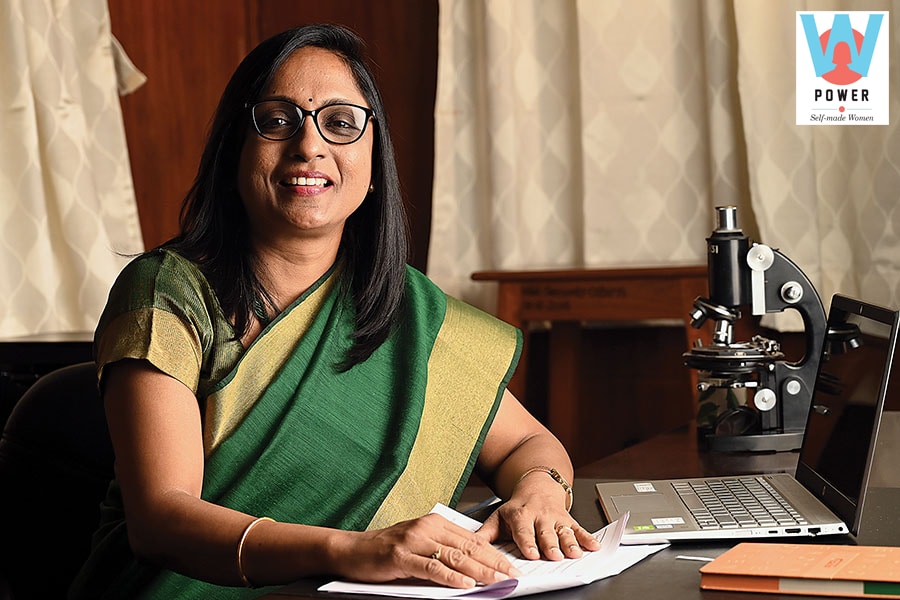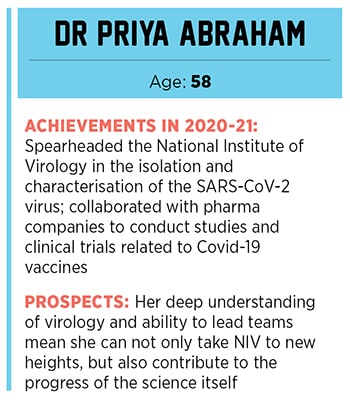
Dr Priya Abraham: For the love of virology
As the head of the National Institute of Virology, her team came across the first sample of Covid-19 in India and isolated the SARS-Cov-2 virus. Abraham on how virology can help cure diseases from infections to cancer, and more
 Dr Priya Abraham, director of the National Institute of Virology
Dr Priya Abraham, director of the National Institute of Virology
Image: Anirudha Karmakar for Forbes India
There was a pack of jackals,” laughs Dr Priya Abraham as she recalls her idyllic childhood spent on the wooded campus meant for employees of an American oil company in Vishakhapatnam. “Holidays were about climbing trees, playing in the open, climbing rocks and learning to swing on the roots of banyan trees… the ground rule, of course, was to come home by the time the streetlights came on.”
Abraham, the 58-year-old director of the National Institute of Virology (NIV) in Pune, has been spearheading the work of the institute, which has been at the forefront of the country’s battle with the SARS-CoV-2 virus. Barely two months after she joined NIV in November 2019, the institute came across a sample that would eventually be confirmed as the first Covid-19 case in the country. Now, more than a year-and-a-half, and two pandemic waves, later, Abraham talks about the challenges and opportunities presented by the pandemic, the importance of teamwork, and why virology is where multiple fields converge.
“Paediatrics and infectious diseases were my first love, but viruses have grabbed more attention in recent years,” says the alumnus of Christian Medical College, Vellore. “Virology is where the greatest challenges and triumphs have taken place, and it has helped in the expansion of our understanding of medicine, science, agriculture and several related fields. Virology is spectacular, and by understanding the biology of viruses, you also get to understand the biology of the cells in which viruses grow. This also helps us find cures to other diseases, such as cancer.” She goes on to highlight that all major pandemics in the history of humankind—except plague and cholera—have been caused by viruses.
(This story appears in the 30 November, -0001 issue of Forbes India. To visit our Archives, click here.)




 Where
Where 




